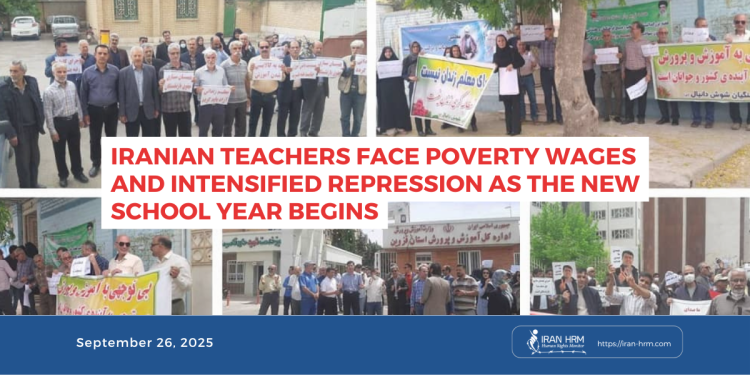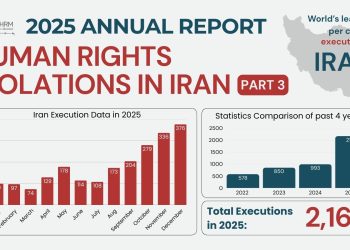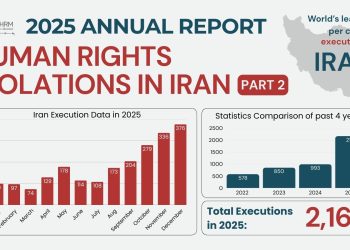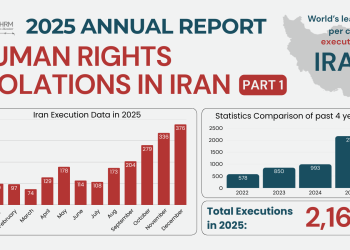As the new academic year begins in September 2025, teachers across Iran return to classrooms under conditions that strip them of the minimum standards of a dignified life. They face poverty wages, precarious employment, and the denial of the right to organize independent unions. At the same time, the ruling regime continues to silence teacher activists through arbitrary arrests, fabricated charges, and heavy prison sentences. For Iran’s teachers, the start of the school year has become not a symbol of education and hope, but a stark reminder of systematic human rights violations.
Economic Hardship and Precarious Working Conditions
Iranian teachers enter the 2025–2026 academic year amid one of the worst living-standard crises in decades. The average monthly salary for a teacher is about 16 million tomans, while the poverty line for an urban household exceeds 30 million tomans. Independent reports confirm that more than one-third of teachers earn under 200 USD per month, forcing many to take on second or even third jobs to survive.
Job insecurity adds to these pressures. Thousands of teachers are employed on temporary or hourly contracts without insurance or benefits, living under the constant threat of dismissal. Such conditions erode both the dignity of teachers and the quality of education for millions of students.
Overcrowded classrooms, a chronic lack of resources, and years of underfunding further burden teachers. In many schools, class sizes surpass 40 students, making it impossible to provide quality education.
Teachers Repressed for Demanding Their Fundamental Right to a Decent Living
Repression of teachers in Iran is not an isolated occurrence but a structural policy. Dozens of teachers and union activists have faced fabricated charges such as “propaganda against the regime,” “disrupting public order,” or “membership in hostile groups.” In reality, none of them committed public crimes; they are punished solely for demanding fair wages, job security, and the right to unionize.
A prominent symbol of this repression is Hashem Khastar, a retired teacher and member of the Teachers’ Union in Mashhad. Since the early 2000s, he has been repeatedly arrested and imprisoned for his peaceful union activities. In 2019, a Revolutionary Court sentenced him to 16 years in prison and exile, and in 2023 he received an additional 2.5-year sentence for sending writings from prison. Despite poor health and denial of medical care in Vakilabad Prison, Khastar remains a recognized voice of independent teachers in Iran.
Other notable cases include Mitra Nikpour, Zahra Azizi, Hossein Rashidi Zarandi, Leila Afshar, Majid Naderi, Shahnaz Rezaei Sharif-Abadi, Fatemeh Yazdani, and Mohammadreza Behzadpour, who received prison terms and heavy fines. Veteran teachers such as Nasrin Karimi, Majid Karimi, Salah Hajimirzaei, Qias Naimati, Leila Zarei, Feysal Nouri, Parviz Ahsani, Kaveh Mohammadzadeh, Hiwa Qureshi, and Omid Shahmohammadi have been dismissed, forcibly retired, or suspended from work.
In recent months alone, at least 15 teacher activists have been summoned to court and 17 others to security agencies, often under threats of dismissal or prosecution. Female teachers such as Masoumeh Asgari and Zeinab Hamrang remain in prison, deprived of medical care and basic rights.
These punitive measures serve only one purpose: to instill fear and silence collective action. Yet the teachers’ movement has endured, proving to be one of the most resilient civil forces in Iran.
International Human Rights Violations
The government’s actions against teachers clearly violate its international obligations:
– ICESCR (Articles 6 & 7): Right to dignified work and fair wages.
– ICCPR (Articles 19 & 22): Freedom of expression and association.
– Universal Declaration of Human Rights (Articles 9 & 23): Prohibition of arbitrary arrest and guarantee of job security.
Call to International Action
We urge the International Labour Organization (ILO), UNESCO, the UN Human Rights Council, and global teachers’ unions to demand the immediate and unconditional release of imprisoned teachers in Iran and to condemn the regime’s repression of independent teacher unions.
Silencing teachers means silencing the future of education in Iran.







